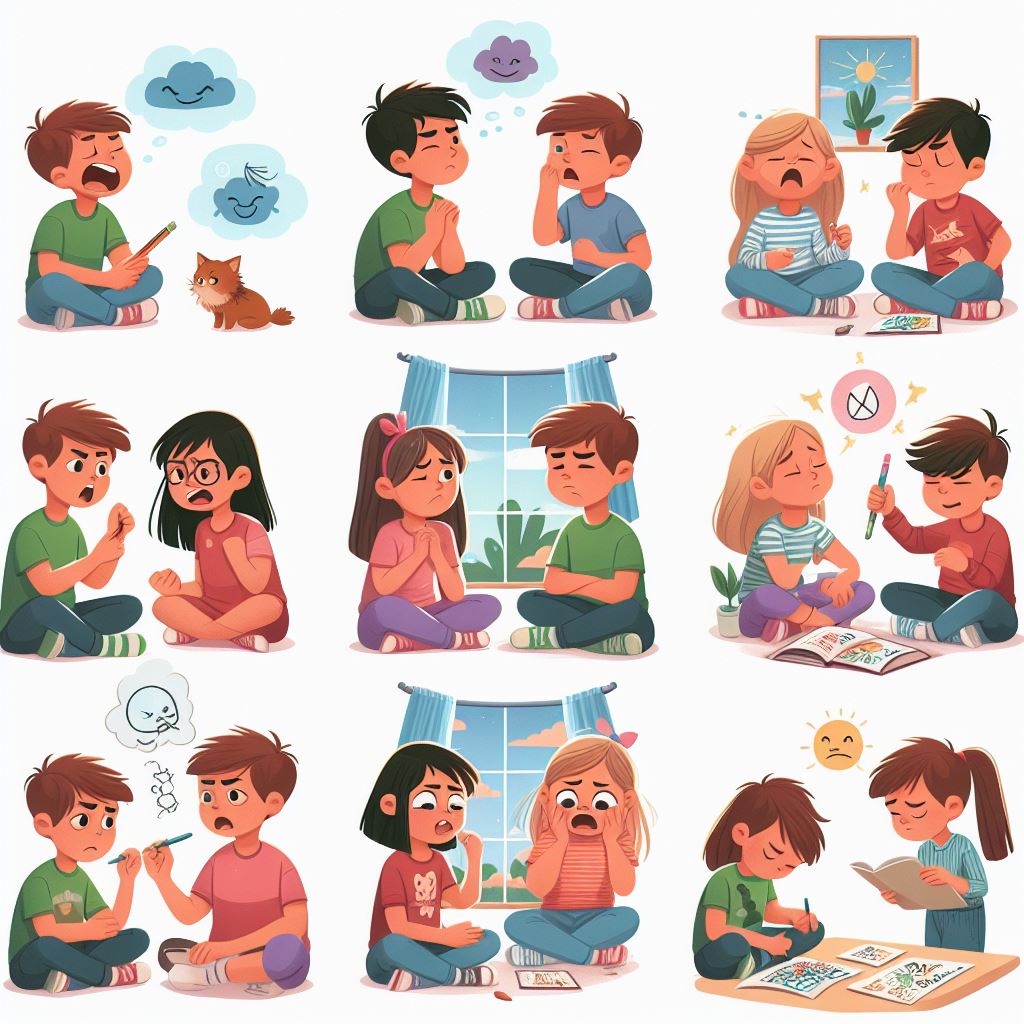Anger is a natural emotion that everyone experiences, including children. For young kids, however, anger can be confusing and overwhelming, leading to tantrums and outbursts that challenge even the most patient parents and caregivers. Addressing childhood anger management effectively is crucial for immediate peace and teaching lifelong skills in emotional regulation and conflict resolution.
Understanding Childhood Anger
Often, children feel angry when they are unable to fulfill their desires, when they feel misunderstood, or when they’re faced with situations that they can’t control. Unlike adults, children usually don’t have the vocabulary or the emotional maturity to articulate their feelings, which can exacerbate their frustration.
Recognizing the signs of burgeoning anger in your child is the first step in helping them manage it. Look for clenched fists, furrowed brows, deep breaths, or stomping feet as early indicators of frustration that can escalate into anger if not addressed.
Establishing a Safe and Supportive Environment
Creating a nurturing environment where children feel safe expressing their emotions is crucial for managing anger during childhood. Encouraging open communication without judgment allows children to share their feelings before they escalate into anger.
Children often mimic the behavior of adults around them. Demonstrating how to manage frustrations calmly and constructively sets a positive example for children to follow. When they witness adults handling difficult situations with composure, they are more likely to learn these coping mechanisms.
Acknowledge and validate children’s emotions as genuine and acceptable. Phrases like, “I understand you’re upset, and it’s okay to feel that way,” reassure children that their feelings are recognized and accepted. This validation helps them develop emotional intelligence and understand that experiencing anger is a normal part of life.
Consistently enforcing rules and boundaries provides a sense of structure and security for children. Knowing the limits and the consequences for crossing them helps children understand expectations and reduces the likelihood of outbursts caused by confusion or frustration. Clear boundaries also foster a sense of safety, as children know what behavior is acceptable and what is not.
Teaching children how to identify and address the underlying causes of their anger is essential for long-term anger management. Encourage them to express their feelings verbally, explore potential solutions to their problems, and seek assistance when needed. By empowering children to solve problems independently or with support, they learn valuable skills for managing anger healthily.
Create opportunities for children to express their emotions through art, writing, or physical activity. Engaging in creative or physical outlets can help children release pent-up emotions constructively, reducing the likelihood of explosive outbursts.
Emotional Regulation
Emotional regulation, the ability to manage and respond to emotions appropriately, is essential for children to navigate and cope with feelings of anger.
Simple breathing exercises can significantly help in calming the nervous system and managing anger. Teach your child to inhale slowly through the nose and exhale through the mouth, focusing on deep breaths to alleviate feelings of anger and frustration.
Rather than viewing time-outs as punitive measures, reframe them as opportunities for “cooling down.” Provide a quiet space where your child can retreat to calm down, reflect on their emotions, and regain control over their feelings before reengaging with the situation.
Introduce a visual aid such as an “anger thermometer” to help children gauge and understand the intensity of their anger. Assign numbers on a scale of 1 to 10 to represent varying levels of anger. Discussing what each level entails helps children recognize their emotions before they escalate, allowing them to implement coping strategies before reaching a boiling point.
Practice Mindfulness and Grounding Techniques. Encourage mindfulness practices such as meditation or focusing on the present moment to help children become more aware of their emotions and physical sensations. Grounding techniques, such as naming objects in the environment or counting sensations, can also help distract from overwhelming emotions and promote a sense of calm.
Encourage Expression Through Art or Writing. Provide outlets for children to express and process their emotions creatively, such as through art, journaling, or storytelling. Engaging in creative activities can help children explore and communicate their feelings safely and constructively, fostering emotional awareness and regulation.
Coping Strategies for In-the-Moment Conflicts
Addressing anger-provoking situations promptly can prevent escalation and provide valuable lessons in conflict resolution for children.
Teach your child to communicate their feelings using words. Encourage phrases like “I feel angry because…” to help them express their emotions in a clear and safe manner. This verbalization fosters emotional awareness and communication skills, enabling them to articulate their feelings instead of reacting impulsively.
When conflicts arise, guide your child through the process of finding a resolution. Pose questions such as, “What do you think could make this situation better?” Engaging them in problem-solving equips them with valuable skills to navigate future disputes constructively. This collaborative approach encourages critical thinking and empathy, promoting mutual understanding and cooperation.
Sometimes, redirecting a child’s focus away from the source of anger can effectively defuse the situation. Propose engaging in a different activity or suggest changing the environment to shift their attention. Redirecting attention helps break the cycle of escalating emotions and provides an opportunity for the child to calm down and regain perspective. It also teaches them the importance of managing their reactions and seeking alternative ways to cope with frustration.
Fostering Long-Term Conflict Resolution Skills
Engage children in role-playing exercises where they can practice responding to frustrating situations. This safe simulation provides valuable teaching moments without real-world consequences, allowing children to explore different approaches to conflict resolution and communication. Through role-play, children can develop problem-solving skills, empathy, and effective strategies for managing anger in various situations.
Help children develop empathy by teaching them to understand how others feel when they are angry or witness anger. Encouraging empathy promotes perspective-taking and understanding of others’ emotions, which are essential for resolving conflicts peacefully. By recognizing and validating others’ feelings, children learn to communicate more effectively, build stronger relationships, and navigate conflicts with empathy and compassion.
Acknowledge and reward your child’s efforts in managing their anger and resolving conflicts peacefully. Positive reinforcement reinforces desired behaviors, encourages continued efforts, and boosts self-esteem. Praise your child for using constructive communication, showing empathy, and effectively managing their emotions during challenging situations.


